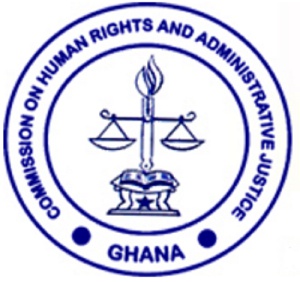The office of the Commission on Human Rights and Administrative Justice (CHRAJ) in the Eastern Region recorded 590 cases in 2019.
Speaking in an interview with the Ghana News Agency (GNA), Mr Alhajj Omar, Eastern Regional Registrar of CHRAJ said the cases were made up of 19 administrative justice cases and 571 human rights cases.
Mr Omar explained that the Commission recorded cases in non-payment of salaries, denial of healthcare, salary arrears and one corruption case was brought by a whistle blower, but is still under investigations.
He said, under the human rights cases, 278 violations were recorded against children, 65 against women, 94 on property rights, 106 on social and economic rights and 28 on civil and political rights.
Mr Omar said, there were more violations in respect of children's rights who were neglected and denied paternity, medical care, custody and education.
Mr Omar said, most of the reports on abuse of the children’s rights were made mostly by parents and public spirited individuals on behalf of children or against private institutions, while administrative justice cases were made against government and public servants.
He said the Commission has 63 more cases to be closed and reiterated that, apart from criminal cases, the Commission exists to protect people and urged all to report violations on their human rights to the Commission.
Mr Shadrach Majisi, Senior Investigator from CHRAJ said, the Commission engaged in lots of education activities in the region on the need to stand up and fight for their rights.
He said so far, the Commission had visited the inmates of the Koforidua and Nsawam prisons to speak to them on human rights and had public education for religious bodies, public institutions, schools and communities across the region.
Regional News of Tuesday, 25 February 2020
Source: GNA
CHRAJ records 590 cases in Eastern Region
Entertainment












